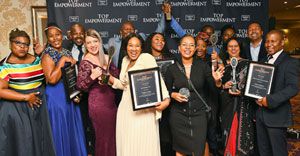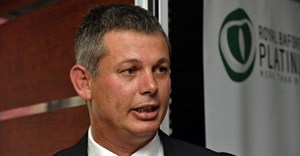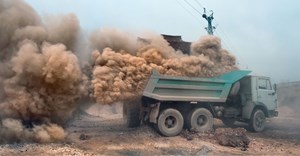
Subscribe & Follow
Advertise your job vacancies
Jobs
- Administrator (Internal Sales Department) Vereeniging
Community input necessary to alleviate mining strife - Bench Marks Foundation
Mining sector discussions should include communities and take cognisance of their legitimate concerns, otherwise these concerns will continue to fester and grow into further conflict and strife.

This warning was issued to deputy president, Kgalema Motlanthe, minister of mineral resources, Susan Shabangu and chairman of the Parliamentary Portfolio Committee on Mineral Resources, Fred Gona, by the social responsibility monitoring organisation, The Bench Marks Foundation, together with other organisations such as Mining Affected Communities United in Action (MACUA), in an open letter issued late the week of 17 June 2013.
Addressing alienation
The letter was issued in response to government's intervention in the mining sector and the release of the Draft Framework Agreement for a Sustainable Mining Industry.
"Communities have been calling on government to include their demands and interests into policy, legislation and negotiations for many years without much success," says the letter.
"The historical and continued exclusion of communities from discussions on economic and social development does not advance stability in the sector and reinforces the alienation of communities which will inevitably lead to further conflict in the sector," it continues.
The letter says that it is apparent that the main protagonists within the conflict in the mining sector, which has seen a growing death toll, are drawn from the ranks of labour, government and business, and that the egregious omission of communities in the various discussions around mining runs contrary to government's own commitment to work with all parties to put in place processes that will bring about real changes.
Concerns raised
It also highlights the concerns raised by over 150 community members from communities across eight provinces in South Africa during a meeting held in December 2012. These concerns include the following:
- continued dispossession of land by mining companies;
- the lack of consultation with communities;
- the denial of communities to the royalties held by tribal authorities;
- the high levels of air, water and ground pollution;
- the loss of subsistence farming land and opportunities;
- the ongoing fight for treatment and compensation for miners who have contracted silicosis;
- the lack of compensation for the care and upkeep of these miners to their rural families once they have contracted the illness and are no longer able to work;
- the lack of rehabilitation of disused mines;
- the lack of infrastructure, schools, roads and sanitation facilities;
- the growing unemployment rate;
- the continued practice of the migrant labour system; and
- the corresponding growth in social ills such as alcohol and drug abuse as well as the growing problem of prostitution in the areas around mines.
A call for inclusive solutions
The organisations involved in writing the open letter have called on the deputy president to lay the foundation for truly inclusive solutions to the problems within the mining sector by including communities in the discussions.
The letter states that "failure to so would be papering over the cracks and laying the groundwork for a renewed struggle in the sector, which will inevitably lead to further destabilisation and conflict".
The letter states further that "economic and social development, transformation and real change cannot be achieved without the full participation of the communities affected by mining".
The letter was written by 14 organisations involved in this field: The Bench Marks Foundation; Mining Affected Communities United in Action (MACUA) - a national network formed by the communities members at the meeting in December to represent the interests of communities affected by mining; Legal Resource Centre (LRC); ActionAid South Africa (AASA); South African Resource Watch (SARW); Land Access Movement of South Africa (LAMOSA); Economic Justice Network of FOCCISA (EJN); Nkuzi Development Association; Socio Economic Rights Institute (SERI); Oxfam; Gold and Uranium Belt Impact Censoring Organisation (GUBICO); Vaal Environmental Justice Alliance (VEJA); Ekurhuleni Environmental Organisation (EEO) and BUA Commmunities of Rustenburg (BUA).
The letter can be viewed at www.bench-marks.org.za.
















